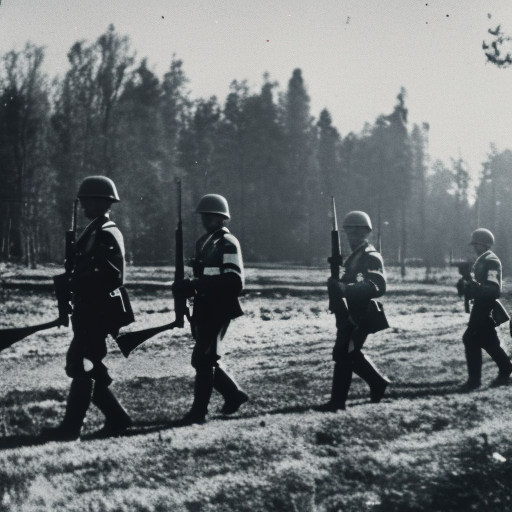Summary:
The Great Patriotic War, also known as World War II in the Soviet Union, was a major conflict fought between the Soviet Union and Nazi Germany from 1941 to 1945. It was the largest and bloodiest war in history, resulting in the deaths of millions of people. The war had a profound impact on the Soviet Union and played a crucial role in the eventual defeat of Nazi Germany.
Background:
The Great Patriotic War was a direct result of Adolf Hitler’s ambition to conquer the Soviet Union and establish German dominance in Europe. In 1939, Germany and the Soviet Union signed the Molotov-Ribbentrop Pact, which included a secret agreement to divide Eastern Europe between them. However, Hitler eventually broke the pact and launched a massive invasion of the Soviet Union on June 22, 1941.
Key Events:
- Invasion of the Soviet Union: Nazi Germany launched a surprise attack on the Soviet Union, codenamed Operation Barbarossa. The German forces quickly advanced deep into Soviet territory, capturing millions of Soviet soldiers and inflicting heavy casualties.
- Battle of Stalingrad: The Battle of Stalingrad, fought from August 1942 to February 1943, was a turning point in the war. The Soviet Union successfully defended the city of Stalingrad, inflicting massive losses on the German army. This battle marked the first major defeat for the Germans and boosted Soviet morale.
- Battle of Kursk: The Battle of Kursk, fought in July 1943, was one of the largest tank battles in history. The Soviet Union successfully repelled a massive German offensive, resulting in heavy losses for the Germans. This battle further weakened the German army and marked a significant turning point in the war.
- Soviet Counteroffensive: After the Battle of Kursk, the Soviet Union launched a series of successful offensives that pushed the German forces back. The Soviet Red Army liberated several countries in Eastern Europe, including Ukraine, Belarus, and Poland.
- Berlin Offensive: In April 1945, the Soviet Union launched a massive offensive on Berlin, the capital of Nazi Germany. The city was surrounded and eventually captured by Soviet forces in May 1945. This marked the end of the war in Europe and the defeat of Nazi Germany.
Impact:
The Great Patriotic War had a profound impact on the Soviet Union. The country suffered immense human and material losses, with an estimated 27 million people killed, including both military personnel and civilians. The war also caused widespread destruction and devastation, particularly in cities like Stalingrad and Leningrad.
Despite the heavy losses, the Soviet Union played a crucial role in the defeat of Nazi Germany. The Red Army’s resilience and determination, combined with the Soviet people’s strong patriotic spirit, were instrumental in turning the tide of the war. The Soviet Union’s victory in the Great Patriotic War solidified its status as a global superpower and established its dominance in Eastern Europe.
The war also had long-lasting political and ideological consequences. The Soviet Union emerged as one of the world’s two superpowers, alongside the United States, and the Cold War between the two powers began. The war also led to significant territorial changes, with the Soviet Union annexing several Eastern European countries and establishing communist governments in the region.
In conclusion, the Great Patriotic War was a major conflict fought between the Soviet Union and Nazi Germany. It had a profound impact on the Soviet Union and played a crucial role in the defeat of Nazi Germany. The war resulted in immense human and material losses, but it also solidified the Soviet Union’s status as a global superpower and reshaped the political and ideological landscape of the world.












